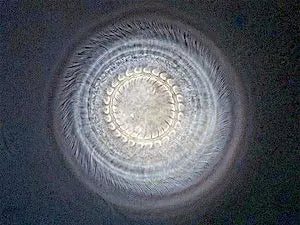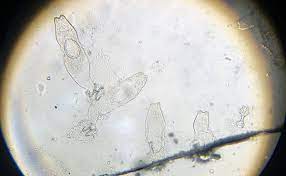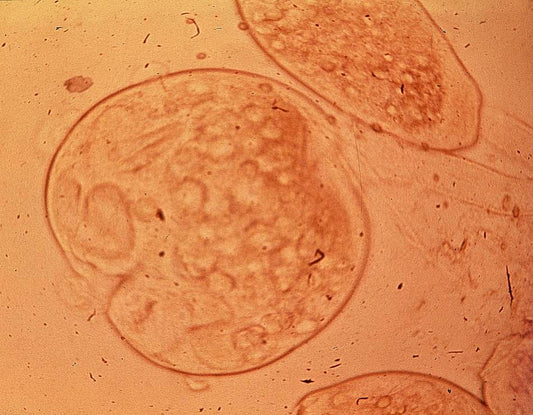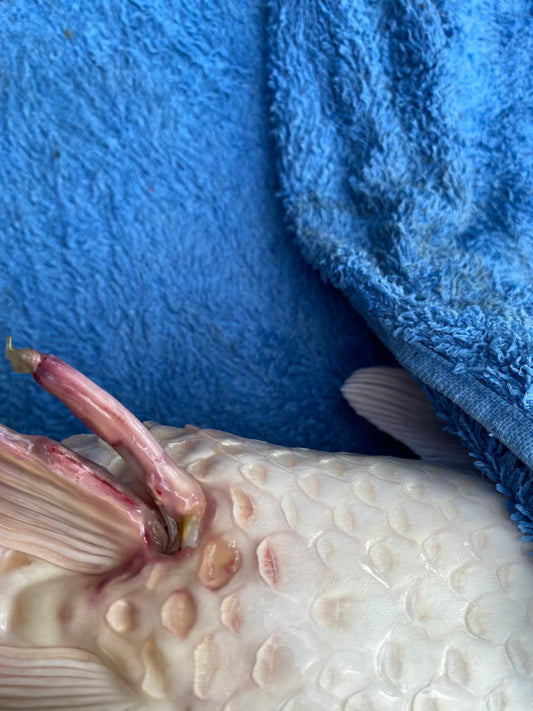Koi Diagnostics

How to Know if My Koi Fish is Sick?
Changes in behaviour, such as erratic swimming, koi swimming upside down, abnormal feeding patterns or isolating themselves from others can indicate that your koi fish is sick.
Physical symptoms like necrosis of the gills, cloudy or popped eyes, raised scales and swollen abdomen are are signs that your fish are unwell and a skin biopsy will tell us which parasite you have.
The simplest way to catch signs of disease or stress early is to become familiar with your koi’s behaviours. Sick koi will exhibit common patterns and are easy to spot!
If you have observed any unusual behavior patterns, you will need to physically examine the suspected koi.
You can diagnose a lot with the naked eye but here at CN-Koi we can investigate deeper.
Please contact us for help




